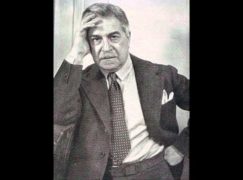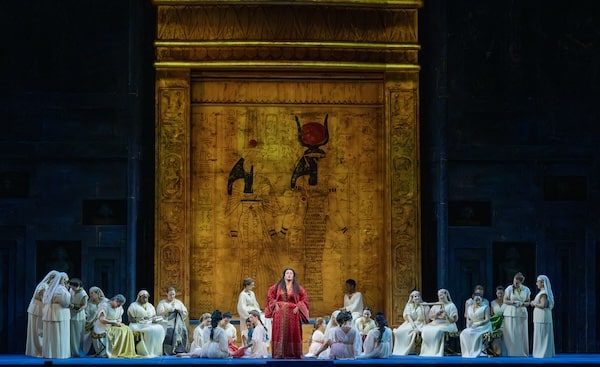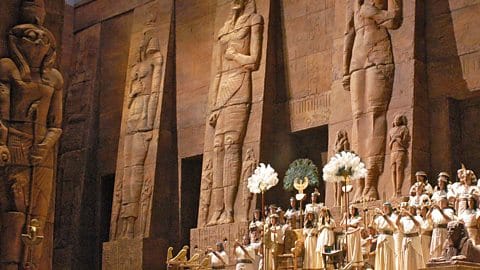The recordings Schnabel did not want us to hear
mainSony have released the complete recordings made by Artur Schnabel for RCA during the second world war.
The Beethoven concertos 4&5 with the Chicago Symphony and Frederick Stock are well known and altogether indispensable, preferable in almost every respect to Schnabel’s 1930s LPO set for EMI with Malcolm Sargent.
Less well played are the sonatas opus 109 and 111, which Schabel refused to approve for release.
They were issued anyway on LP in 1976.
There are also four Schubert Impromptus which Schnabel refused to sign off and which have never been heard before.
Why the master-pianist withheld his approval we shall never know. There are some wrong notes, of course, but that never bothered Schnabel. These are outstanding documents of a formative artist at the peak of his powers. They display all the Schnabel hallmarks of extreme dynamic shifts, cascading trills and dashes of wry wit.
I have been listening obsessively for two days without discerning any possible reason that these recordings should have been condemned by an artist’s whim to a dark vault in New York.
Does anyone know what Schnabel’s objections were?






These will be fascinating to listen to. It is understandable that he did not want them released if there were any issues with the recording or his playing that did not meet his artistic satisfaction–or if a contract for payment was an issue. Would there be any information attesting to either? But for history sake, it is a revelation for us. Similar to Leroy Anderson, who withdrew his delightful piano concerto, and it took until decades later for the Anderson family to give the ‘ok’ to release the score/parts. What I do remember is something my teacher said, as she was a pupil of Schnabel. When I brought his edition of the Beethoven sonatas to a lesson, she said, ‘Dear, he said he writes in all of those directions for people who don’t know what to do at all. he didn’t follow them exactly.’ LOL!!
True artists are never fully satisfied with their performances. They demand the best of themselves for the sake of their music. In today’s world, everyone records everything with little attention to detail or care for the end result. Today’s performers would do well to take after Schnabel’s example.We may never know why these recordings did not make the cut for him, but we are fortunate enough to enjoy them now. And they are still far and away much better than most of of today’s recent offerings.
My teacher Karl Schnabel told me that his father edited Beethoven sonata at age 24 and recommend Urtext editions.
I would agree with Karl!! Look through Schnabel Edition and……go to URTEXT and learn from it.
The very highly regarded Edwin Fischer recordings of the Impromptus were available on the American market at the time, and on the same label, Victor, and perhaps Schnabel felt Fischer’s versions were better than his. It would be interesting to compare them.
Of Fischer’s set of Ops. 90/142, one critic, Irving Kolodin referred to Fischer’s “discernment, deeply founded artistry,,,matched with that special quality of feeling which is implicit in satisfactory playing of Schubert….tone quality pleasing and very resourcefully varied.” And the recording was deemed “consistently good.” David Hall also raved about them. Fischer obviously set the bar very high even for a Schnabel.
Re the Beethoven concerti, some may want also to check his recordings of Nos. 2-4 with Dobrowen made in 1946, and of the ‘Emperor’ with Galliera made in 1947. Comparison shopping may be wise here, the more so for those well-acquainted with the works, and in that respect YouTube may come in handy before money is laid out.
another business arrogance: disrespect of the artist’s wishes!
I’m sure Backhaus would have thrown up in his grave when the pigs released his last recital in Ossiach in 1969. He became ill while playing and could not finish the printed program’s repertoire , Beethoven sonatas. After a long hiatus in the overly-hot church he played two encores, finishing prophetically with”Warum” of Schumann.Oh yes,my first experience and alas last of hearing him in recital.
I had exactly the same thought when the recording of the Scriabin Piano Concerto made by Solomon with Issay Dobrowen was released in 1991. Both had barred its release in 1949, feeling that the idiom of the work had escaped them, though technically it was all in respects perfectly satisfactory.
Schnabel’s 1940s performances of Beethoven’s Op. 109 and 111 sonatas are great performances. However, they just aren’t quite as good as his 1930s recordings of these same pieces. I’m sure that’s why he didn’t approve the release of the 1940s versions.